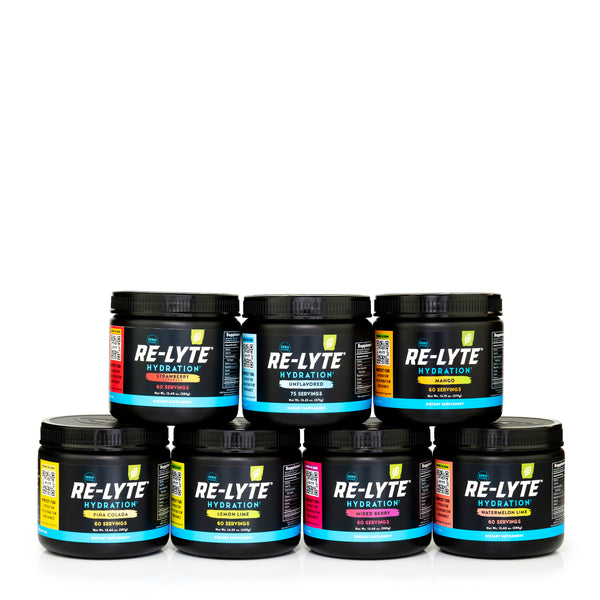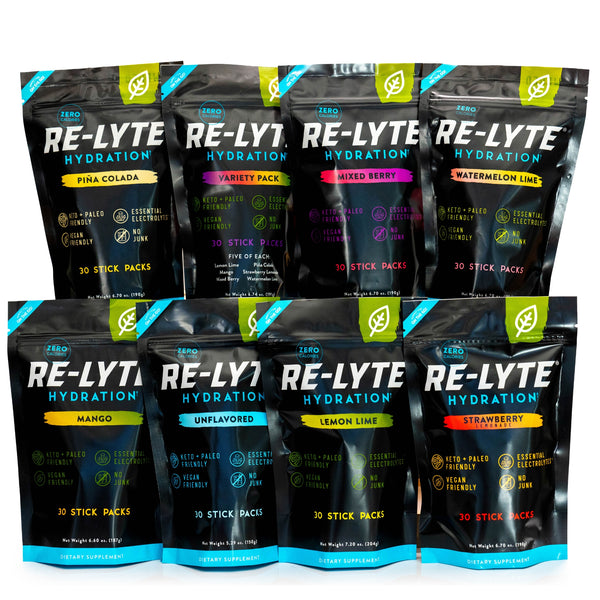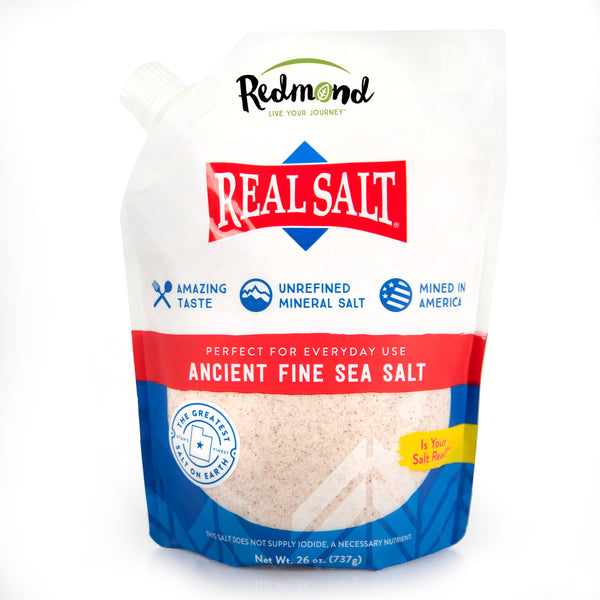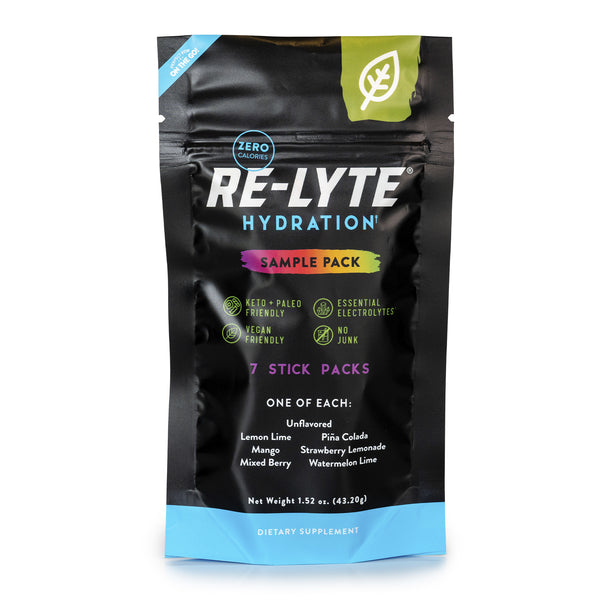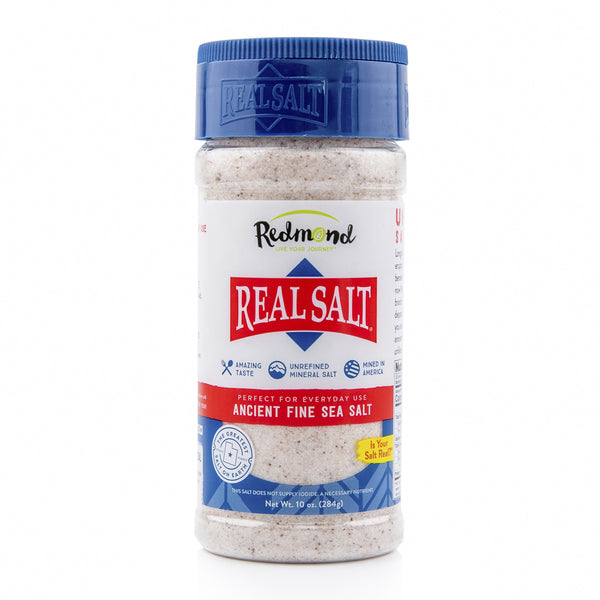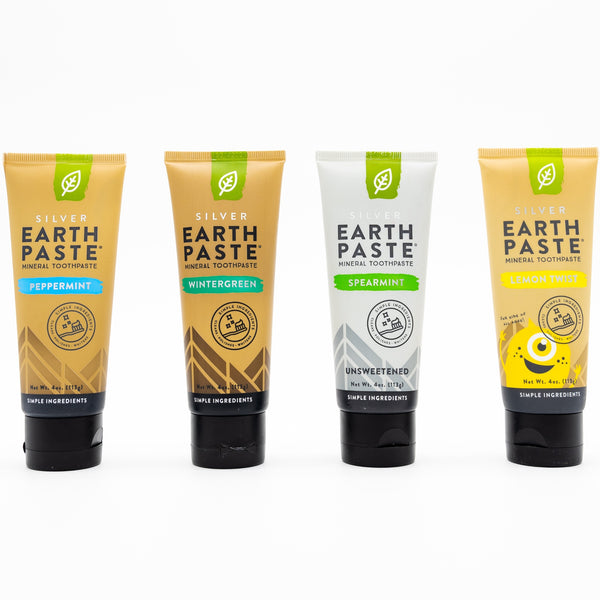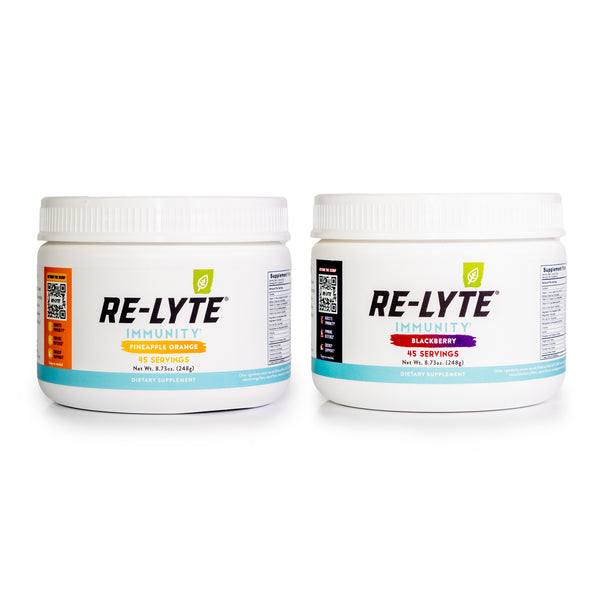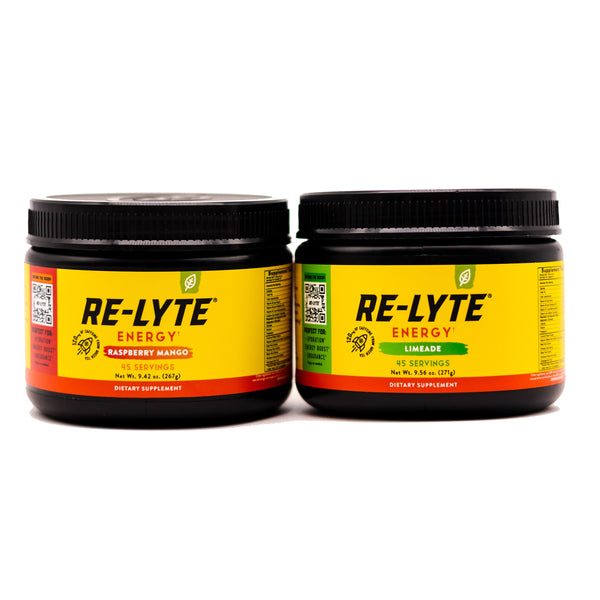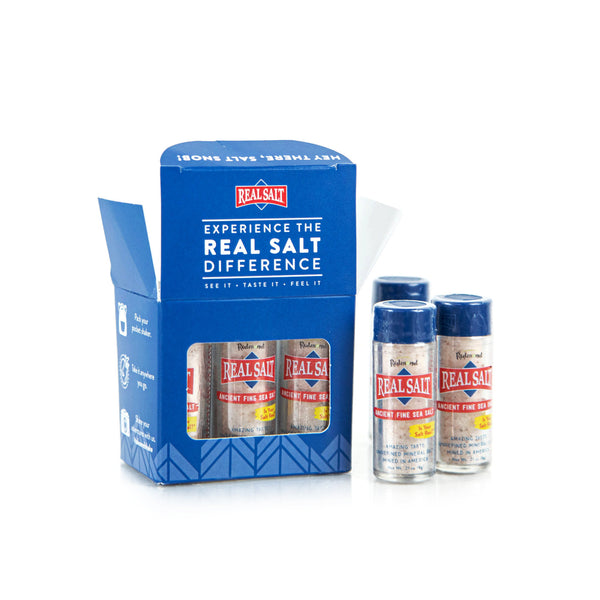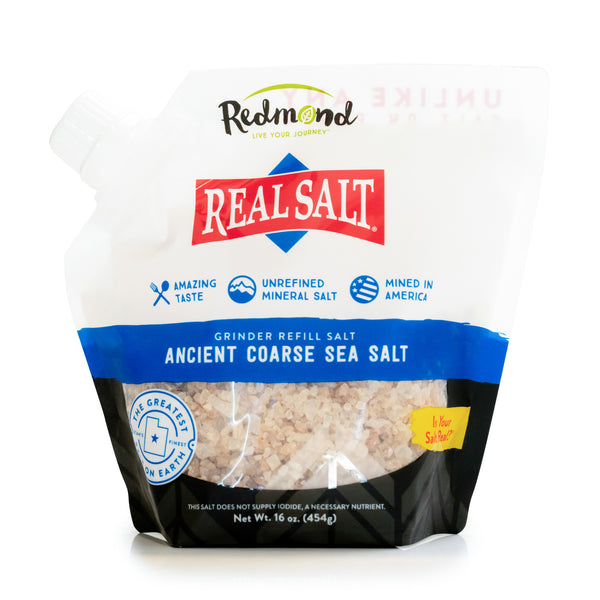What Is the Ideal Electrolyte Balance for Exercise Recovery?
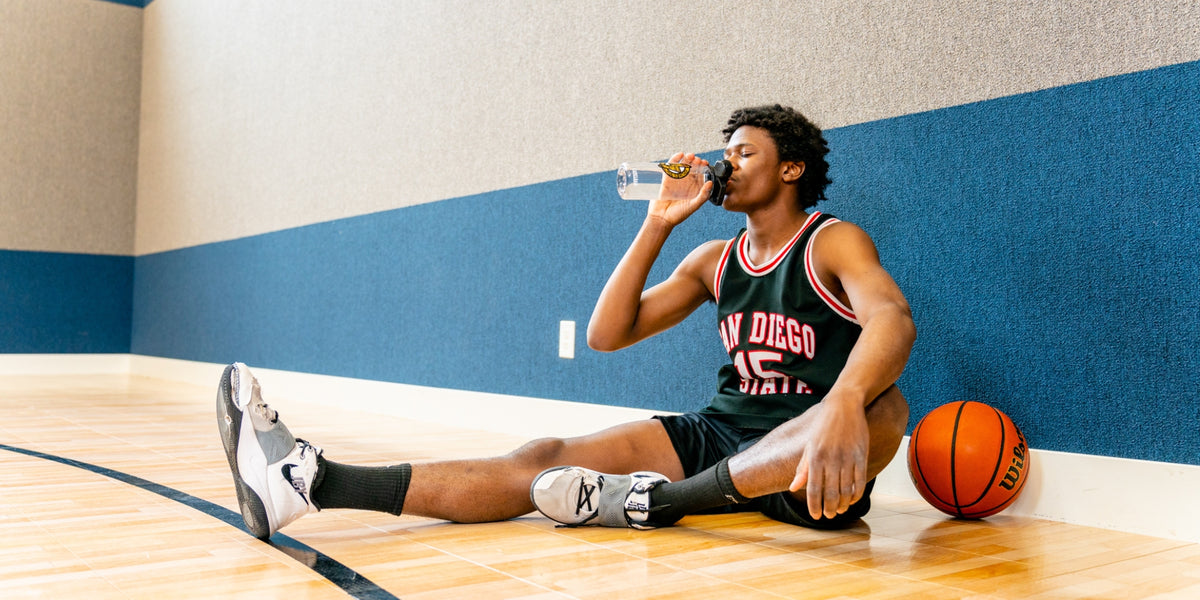
Article at a Glance:
- Rest and rehydration are keys to successful recovery from exercise.
- There are five primary electrolytes (sodium, calcium, magnesium, chloride, and potassium), and sodium is the one you lose most when you sweat.
- Most electrolyte products don't contain enough sodium to replenish sodium reserves for serious exercisers.
- Re-Lyte Hydration has an ideal micronutrient blend that includes 810 mg of sodium.
You take exercise seriously. The nearest CrossFit gym is like your version of the Cheers bar. You wake up at dawn every morning to train for a marathon (even the mornings when it’s cold and wet and your dog is cuddling with you under the blanket). You spend hours a day perfecting Lotus Pose, King Pigeon Pose, Peacock Pose, and all the other poses that make you look more like a Stretch Armstrong doll than a human.
Fitness enthusiast, exercise junkie, athlete— whatever you call yourself, your body has different needs than the occasional power walker, the person who drops in for a hatha yoga class from time to time, or the person who does a 30 minute YouTube exercise video a few times per week.
For you, exercise is a way of life. And if you want to keep living the active life you love and achieve your fitness goals, you have to pay extra special attention to something that’s easy to overlook when you’re caught up in that healthy living high— recovery. If you don’t give your body what it needs to recover from your workouts, you’re not going to be able to continue performing at your best. That includes rest and relaxation, but it also includes another “r” word— rehydration.
When you sweat, you lose water and electrolytes at a rapid pace. The thrice-a-week YouTube video exerciser doesn’t need to worry about this much. As long as they drink some water after each workout, they should be fine. But if you’re engaging in serious, sweaty exercise sessions daily (or close to it), you need to take rehydration to the next level. That means drinking lots of water AND purposefully replenishing electrolytes. Here’s what you need to know to rehydrate right…
Understanding the Connection Between Electrolytes and Exercise
Electrolytes are minerals that turn into positively or negatively charged ions once dissolved in water. These electrically-charged minerals take on some pretty important tasks. They balance the amount of water in your body. They maintain your body’s acid-alkaline balance. They deliver nutrients to your cells, and transport wastes out of your cells. And they regulate your nerve, muscle, heart, and brain function.
There are five primary electrolytes (chloride, potassium, calcium, sodium, and magnesium), and they all have different jobs in your body:
- Chloride helps your cells maintain the proper balance of fluid.
- Potassium helps regulate your heartbeat, muscle contraction, and nerve impulse conduction.
- Sodium helps keep your bodily fluids in balance.
- Calcium and magnesium play a role in muscle contraction, including the contraction of the heart muscle.
All five electrolytes need to be replenished regularly. But when it comes to exercise recovery, there’s one that should receive most of your attention: sodium.
Sodium is the electrolyte you lose most in sweat. The average person loses about one gram of sodium per liter of sweat (although, that number can range anywhere from 0.2 grams per liter of sweat to 12.5 grams per liter of sweat). For most people, that’s about one gram of sodium lost per hour of exercise. You also lose a lot of chloride in your sweat, and small amounts of potassium, magnesium, and calcium.
Now, the average Joe exerciser can usually replace the sodium he loses during workouts through diet. But people who take a more ambitious approach to exercise typically aren’t refilling their electrolyte reserves enough— even if they add those colorful, electrolyte sports drinks to the mix.
A 2015 study published in the Scandinavian Journal of Medicine & Science in Sports found that triathlon racers who took salt tablets and drank sports drinks replaced about 71 percent of the sodium they lost by sweating. Triathlon racers who drank sports drinks but didn’t take salt tablets only replaced about 20 percent of the sodium they lost through sweat. Guess what else? The people who took salt finished the race 26 minutes faster.
You’re Unique… and So Is Your Electrolyte Loss
Your ideal amount of post-workout electrolytes depends on how much electrolytes you lose during your workout. And the truth is, there are sooooo many factors that influence how much electrolytes you lose when you exercise….mainly because there are sooooo many factors that influence how much you sweat.
Some people naturally sweat more than others. Larger people tend to sweat more than smaller people, for example. Age, gender, and diet can influence how much you sweat too. Men tend to sweat more than women. And older people tend to sweat less than younger people. There are also genetic factors at play. Some people are just naturally sweaty. Period.
Then there are those factors that’ll make anyone a little extra sweaty— exercising in hot or humid weather, doing high-intensity workouts, exercising for longer than 60 to 90 minutes, wearing exercise clothes that are too heavy or non-breathable.
With all these individual factors at play, it’s hard to issue a blanket statement saying everyone needs to replenish with this many electrolytes after working out. That said, we’ve spoken to endurance, keto, and fitness experts who’ve helped us nail down an electrolyte formula that will deliver enough electrolytes to the most serious exercisers.
What the Experts and Research Say About Electrolyte Balance for Exercise Recovery
Health and exercise experts seem to agree on one thing: Most electrolyte products don’t contain enough sodium to replenish sodium reserves for serious exercisers. Remember the study we mentioned before? People participating in triathlons who drank electrolyte drinks and used salt tablets still didn’t replace all the sodium they lost.
That’s why we created Re-Lyte Hydration. It has an ideal micro blend developed by experts and backed by the latest research. It contains two times more sodium than most other electrolyte products, along with an optimized blend of other electrolytes. Here’s the exact electrolyte ratio you’ll get in a serving:
- 810 mg of sodium
- 400 mg of potassium
- 1,280 mg of chloride
- 60 mg of calcium
- 50 mg of magnesium
- 80 mg of coconut water powder
- 60+ trace minerals
Now, Re-Lyte Hydration contains more sodium than other electrolyte products but it contains far less other ingredients— additives, artificial flavors, artificial colors, GMOs, you know, all icky stuff you’d rather avoid.
It also comes in flavored and unflavored varieties. Unflavored Re-Lyte isn’t sweet at all (it falls more on the very, very salty end of the spectrum) and contains zero calories. The flavored varieties are lightly sweetened with stevia and also contain zero calories.
So, whether you’re trying to keep your electrolyte reserves strong during hot yoga, before you run a big marathon, in-between CrossFit workouts, or whatever other intense fitness fun you have penciled in, give Re-Lyte Hydration a try. It’s the perfect option for anyone who wants to rehydrate as seriously as they exercise.
Comments (14)

I am beginning a low carb diet. With “listen to your body” in mind, is it generally safe to have 2 scoops of Re-Lyte Hydration per day?
———
Redmond Life replied:
Hi Sean, thanks for your question. Re-Lyte Hydration was designed to be used daily. For an active, healthy person, two servings in a day should be totally safe. Here’s a link to an article on our website breaking down the things you should consider when deciding what the right serving size is for you: https://kb.redmond.life/how-much-re-lyte-hydration-is-too-much

I have the MTHFR gene mutation and cannot have folic acid. B vitamins have to be in folate form. Does the electrolytes contain any B vitamins? Just want to make sure I’m safe.
Thank you kindly -
Cathy Regan
———
Redmond Life replied:
Hi Cathy! Thanks for your question. The natural flavors in our flavored hydration mixes use real fruit and coconut water. Not being an expert on your condition, I would recommend our Unflavored Re-Lyte. Unflavored doesn’t contain stevia, natural flavors, citric acid, coconut water powder, or calcium. But be sure to read the label carefully to make sure it meets your specific dietary needs.

Do any of these have green tea extract in them?
———
Redmond Life replied:
Hi Lisa, Thanks for your question. Re-Lyte Hydration does not contain green tea or caffeine, but Re-Lyte Boost, Energy, and Pre-Workout all do. Feel free to reach out to our customer service folks for more detailed information.

Hi Jenny,… Can i drink this as a pre-workout drink? If not, when should i have my serving? Before workout?After? i’m ordering a Re-Lyte Hydration and wanted to know the best time to take for maximum effectiveness.
———
Redmond Life replied:
Hi Jay, Experts recommend hydrating with electrolytes 30-60 minutes before a workout and then starting rehydrating within 30 minutes after a workout. But listen to your body to discover what works best for you!





